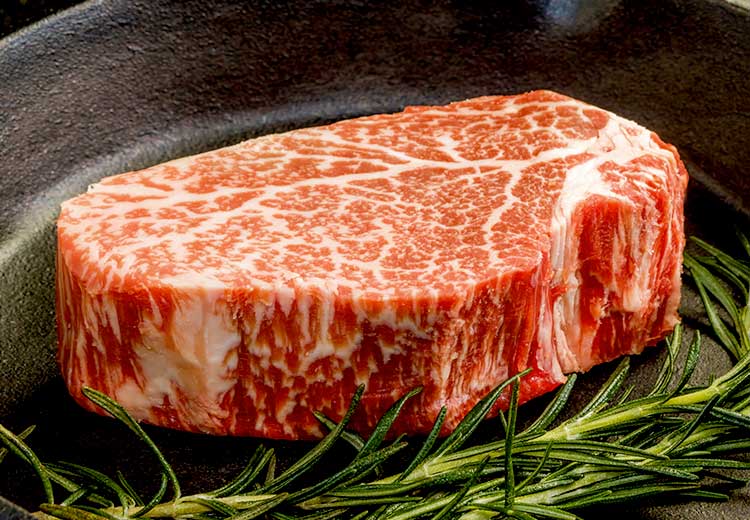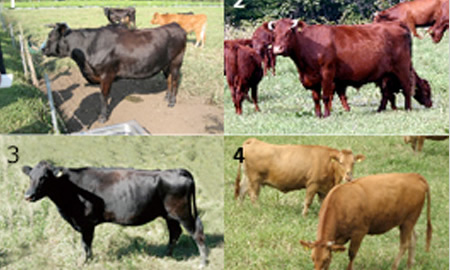Essiential Ingredients of Japanese Food - Wagyu beef

Wagyu beef
Great tastes are the fruit of farmers’ effort
What is wagyu?

Wagyu refers to limited meat brands such as Japanese Black, Japanese Brown, Japanese Shorthorn, and Japanese Polled, and are cattle designed through continuous improvements to original Japanese cattle. Crossbred cattle within the above mentioned four cattle are still regarded as wagyu.
On the other hand, domestic cattle are referred simply to those grown in Japan and they are different to wagyu. Even foreign bred or imported cattle are called domestic ones when they are fed in Japan for three months or more.
Quality maintenance technology and precise care

High quality wagyu is nurtured only under special technologies of farmers and with their precise care. The farmers look after wagyu cattle just like caring their own babies at well-ventilated hygienic barns covered with woodchips, and they feed the cattle with a mixture of hay and safe and highly nutritious feed. Wagyu meat becomes soft, sensitive, juicy and tasty when the farmers care for the cattle in everything precisely including their health.
Its marble design is a proof of great taste and quality

The unique features of wagyu cattle include soft meat and juicy texture, as well as rich tastes that contains full of deliciousness. The deliciousness is determined depending on the quality of fat. The fat is not greasy and it gives you a feeling of melting on a tongue. Its unique beautiful marble design is called “sashi” or “shimofuri”. Wagyu beef is carefully examined before being released in the market to check its colors and leanness of the meat, and the designs of ‘sashi’ to determine its rank. The A5 grade is the highest.
The Wagyu Mark is used as a standard of the wagyu ranks. It can be used as reference to find delicious and quality wagyu. Recent years has seen that healthy people tend to prefer red wagyu meet with high protein and low fat.
* Please refer to the link below for further information on the Wagyu Mark
http://www.maff.go.jp/j/export/wagyu/
Strict control system to deliver reliable products

After the epidemic of BSE (Bovine Spongiform Encephalopathy or cow disease) in the early 2000 and the foot-and-mouth disease in 2010, Japan has introduced strict examinations on BSE and the removal of Specified risk material (SRM) to all cattle in the nation. The thoroughness of the examinations is one of the strictest in the world.
Moreover, under their complete traceability systems, in which all of Japan-born cattle are registered in a registration book for each cow at the time of its birth, all the cattle are given an individual recognition number. Using this number, all the information on the history of Japanese cow beef in the market can be checked including its type, date of birth, etc.
